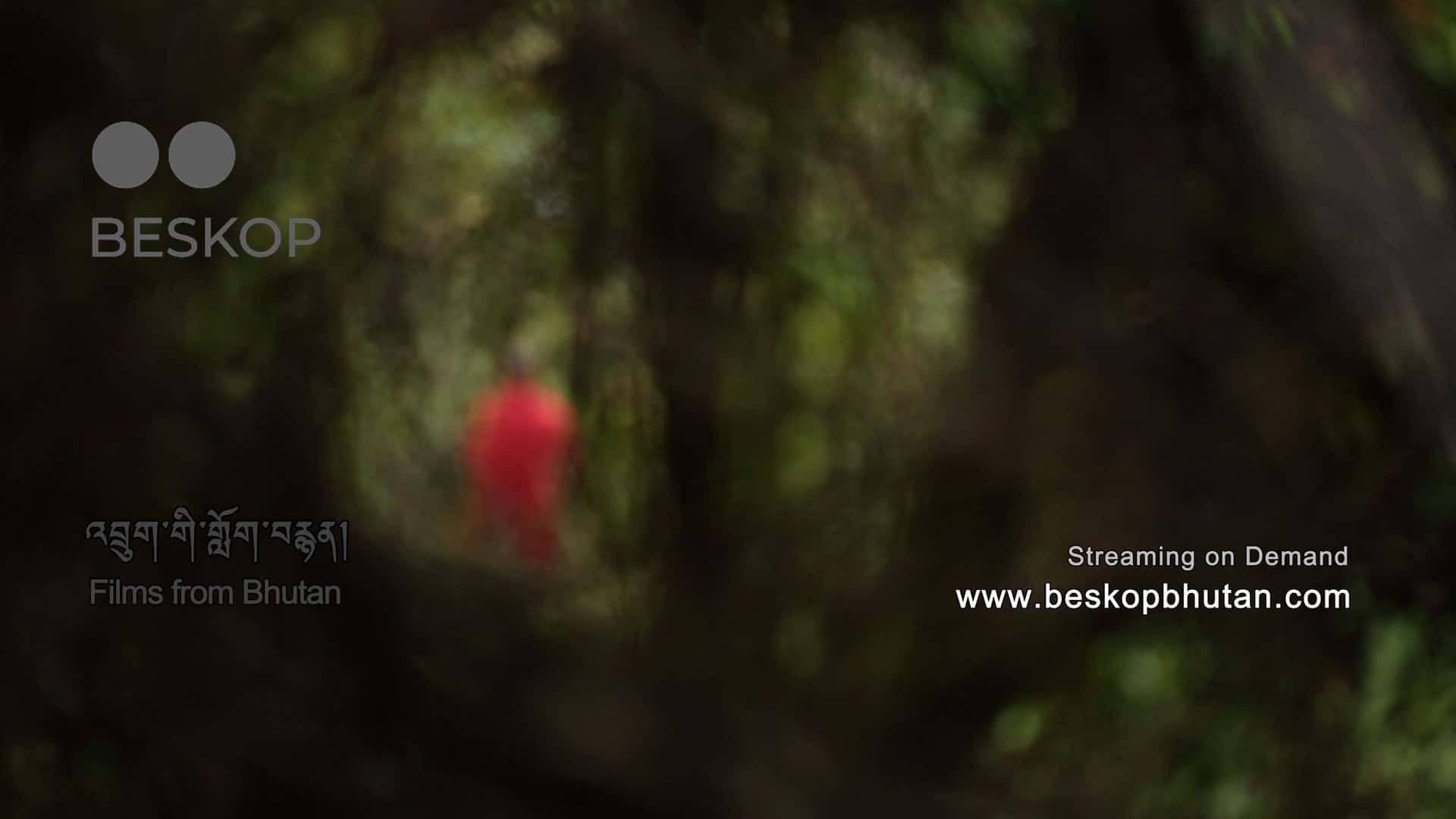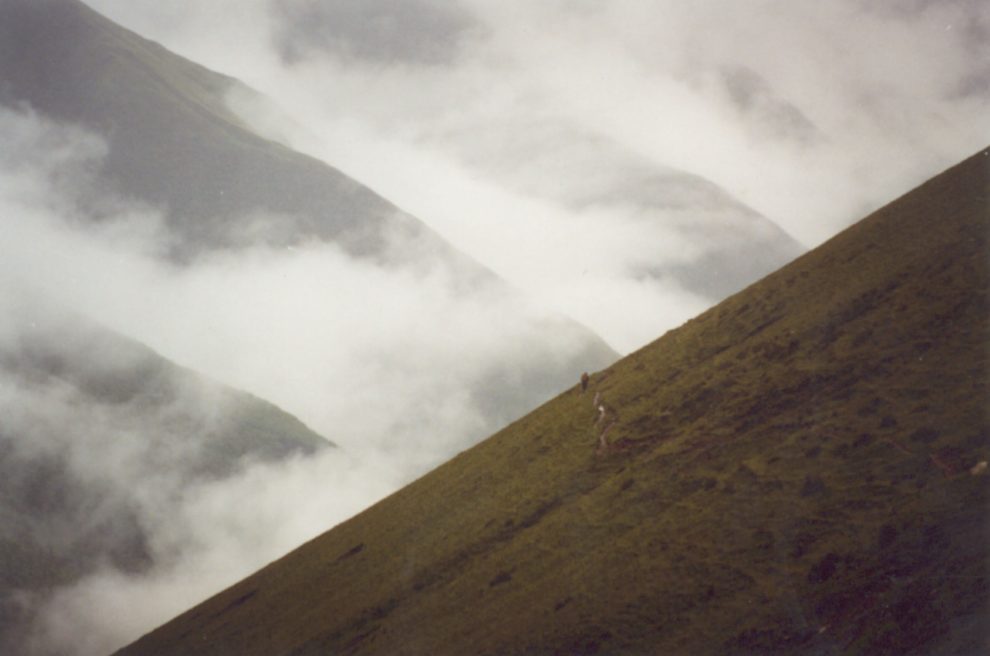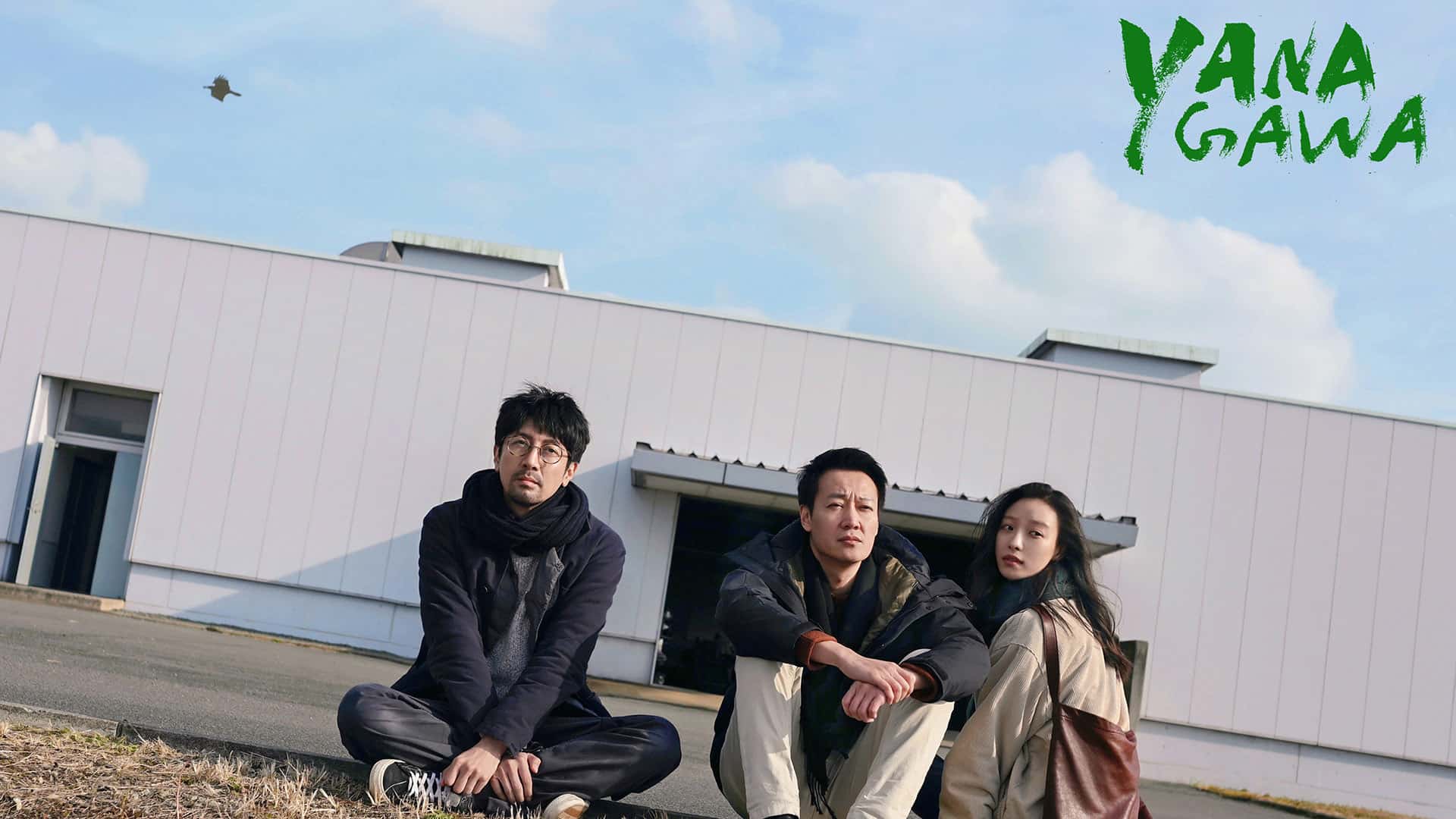Homer's “Odyssey” is one of the most renowned pieces of literature worldwide, and probably one of the first “road” novels ever to appear. The adventures of the honomymous protagonist, in his way to reach Ithaca, his homeland, from Troy, have been inspiring artists and influencing ways of thinking for centuries. Thus, it is a surprise to come across a documentary that takes place in the latest millennium and focuses on a man who seems to experience an odyssey once a month, as he delivers mail by foot to Lingshi, a high mountain village (at 12,000 ft), a trip that takes about a week each way.
“Heart in the Mandala” is screening on Beskop

The person in question is 49-years-old (at the time) Ugyen Tenzin, the last postal runner of Bhutan, who has been working for the post, doing the aforementioned delivery once a month, for 26 years. Ugyen Wangdi, Bhutan's first filmmaker, followed Tenzin for three years in his path throughout the seasons and came up with an impressive documentary (in Beta format no less), that highlights both the man and his work.
In that fashion, the documentary starts at Thimpu, where Tenzin picks up the letters he is to deliver in Lingshi, with the interviews of a number of postal officials narrating the history of postal service in Bhutan, which started just in 1962. The film then focuses on the postal runner's trip, with his narration providing additional info about the places he stops, the few adventures he has experienced in his years of service and his constant fight against nature's wrath. In his path, he meets very few people, one of which is Karma, a young man who asks Tenzin's help to open up the road, before he begins talking about the reasons he prefers the city to the mountains. Tenzin also speaks about the loneliness his line of work entails, and how his lessons with his guru have helped him face it.
A bit later, he arrives in his own Ithaca, Lignshi, where we also learn that his family leaves there. As we follow him in his meeting with his daughter in the local school, “Wireless Babu”, the official in charge of the post and the telephone in the area, and with the local governor, the portrait of a man who puts duty above everything else is depicted quite eloquently, particularly because he does not visit his family, until he has delivered the last of his letters.
This part, through the narration of Tenzin and the interviews with the locals, communicates much info about the area, with its 1000 inhabitants, the harsh way of living and the main occupation,yak herding. Both Tenzin and the rest of the people there feel thankful to the government for its benevolent intervention, and essentially, for their way of living, with the exception of the officials, who are not from there, and have to live in the area without their families, particularly because it is difficult to sustain more people due to its few resources. The movie closes in very fitting fashion, with Tenzin beginning another trip, highlighting his sense of duty and discipline once more, and explaining why he disagrees with Karma.
In the 69 minutes of the documentary, Ugyen Wangdi creates the portraits of a man, an area, and in essence a way of thinking, in the most eloquent but also sober fashion, mirroring in that way, the character of Tenzin, in one of the narrative's best traits. His own editing is excellent, focusing on what is important, without any particular effort at dramatization or beautification, while Ten Dorji Leki and Ugyen Wangdi Phuntso's camera captures both the people and the various setting with realism and artistry. A number of long shots, in particular, highlight the beauty of the area in the most impressive way, although Ugyen Wangdi avoids the reef of making his documentary a carte-postale, National Geographic-like one, since his approach is more anthropocentric, in another of his effort's greatest traits.
“Price of Letter” is an impressive documentary, in all of its aspects. Back in 2004 and 2005, it won awards from festivals in Brooklyn, Trento, Toronto and Tokyo, and anyone who watches the film will easily understand why.















